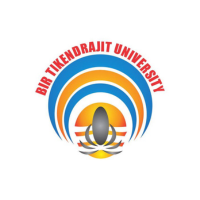Master Of Business Administration [MBA] – BTU
The Master of Business Administration (MBA) program at BTU offers a wide range of courses, each designed to equip students with specialized skills and knowledge for different career paths within the business world. Here's an overview of the various MBA courses available:
-
Human Resource Management: This program focuses on recruiting, hiring, and managing personnel, preparing students for careers in HRM.
-
Marketing Management & Finance: Combines marketing and financial management concepts, teaching students to efficiently manage resources and make informed business decisions.
-
Banking & Insurance: A program that delves into management theories specific to the banking and insurance sectors, catering to the financial industry's needs.
-
Finance: Equips students with skills in corporate finance, economic trend analysis, investment portfolio management, and risk assessment.
-
Travel & Tourism Management: Focused on business management with a special emphasis on the travel, tourism, and hospitality sectors.
-
Journalism & Mass Communication: Provides expertise in media management, overseeing media teams, entertainment production companies, and various mass communication channels.
-
Executive: Designed for working professionals who wish to pursue an MBA while continuing to work full-time, often offered as an EMBA with flexible schedules.
-
Supply Chain Management: Integrates supply chain management with general business administration, preparing graduates for roles in optimizing supply chain processes.
-
Industrial Engineering: Offers knowledge in optimizing complex organizations, processes, and systems, incorporating engineering, science, and mathematics.
-
Hotel Management: Develops managerial skills required for working in the services, tourism, or hotel industries.
-
Pharmaceutical Management/Biotechnology: Trains managers for the biopharmaceutical, bio-agricultural, and bioinformatics industries.
-
IT: Combines business understanding with specialist courses on information security, telecommunications, and IT project management.
-
Operations & Production: Focuses on managing business procedures to enhance production systems for effectiveness and efficiency.
-
International Business Development: Teaches leadership, communication, and international market skills for succeeding in multinational firms.
-
Total Quality Management: Prepares managers to improve business management culture and practices to international standards.
-
Project Management: Integrates project management with an MBA to provide comprehensive insights into how projects impact business operations.
-
Retail: Offers knowledge of retail industry management, teaching key managerial skills for streamlined retail processes.
-
Medical Plants & Agriculture: Covers the production, distribution, and business aspects of agriculture in the MBA course.
-
Health Administration: Prepares students to oversee operations in healthcare systems, such as hospitals and pharmaceutical corporations.
-
Management: Provides a broad understanding of various business-related topics, including financial models, HR management, marketing, and corporate strategy.
-
Business Analytics: A popular specialization that prepares students to approach business from a data-driven perspective.
-
Marketing Management: Focuses on marketing skills, as marketing plays a pivotal role in driving an organization's success.
-
Hospital Management: Offers a comprehensive understanding of healthcare industry dynamics and healthcare system administration.
-
Data Science: Trains professionals to address complex business problems using data-driven decision-making modules.
Each of these courses provides a unique set of skills and knowledge, allowing students to tailor their MBA experience to their specific career goals and interests.
-
Bachelor's Degree: Applicants must have completed a Bachelor's degree in any discipline from a recognized university or institution.
-
Minimum Percentage: Most MBA programs require a minimum percentage (usually 50% or above) in the undergraduate degree. Some top-tier institutes may have higher cutoffs.
-
Entrance Exam: Candidates need to qualify in national-level entrance exams such as CAT (Common Admission Test), XAT (Xavier Aptitude Test), MAT (Management Aptitude Test), or CMAT (Common Management Admission Test).



